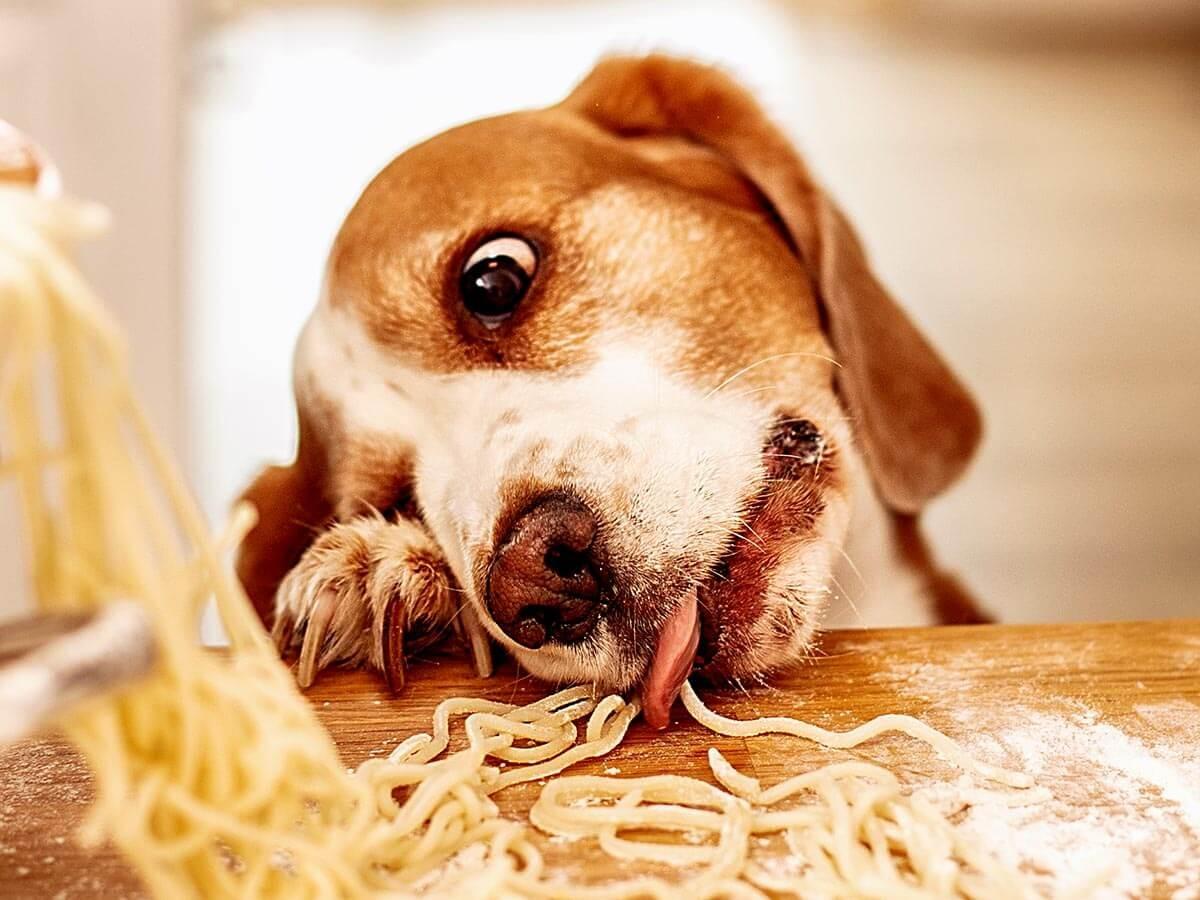We love a good plate of pasta, but when your furry friend gazes at you with those pleading puppy-dog eyes, it's natural to wonder, "Can dogs eat pasta too?" While a few noodles won't likely hurt them, it's important to understand that pasta shouldn't become a regular part of your dog's diet.
What's in Pasta, and Why Isn't It Ideal for Dogs?
Most pasta is made from refined wheat flour. While it offers some carbohydrates, vitamins, and minerals, it has limited nutritional value for dogs. Here's why:
High in Carbs, Low in Protein: Dogs are primarily carnivores – their bodies thrive on a protein-rich diet. Pasta is mostly carbs, which can contribute to weight gain in dogs.
Potential for Allergies: Some dogs are sensitive to wheat or grains, potentially leading to digestive upset, skin problems, or chronic issues.
Limited Benefits: Even whole-grain pasta offers fewer nutrients for dogs compared to options specifically designed for their dietary needs.
Is Pasta Ever Safe for Dogs?
Yes, in small amounts and as an occasional treat, plain, cooked pasta is unlikely to harm your dog. Ensure it's:
When to Absolutely Avoid Pasta for Your Dog
While occasional, plain pasta in small quantities is unlikely to harm most healthy dogs, there are certain situations where it's best to steer clear altogether. Here are some key red flags to watch out for:
Underlying Health Conditions:
Diabetes: Pasta's high carbohydrate content can significantly spike blood sugar levels in diabetic dogs, potentially leading to serious complications. If your dog has diabetes, stick to veterinarian-approved treats specifically formulated for their condition.
Weight Management Concerns: Pasta's calorie density can easily contribute to weight gain, especially in dogs already struggling with obesity or prone to putting on pounds. Opt for lower-calorie, high-protein alternatives like lean protein treats or frozen vegetables.
Food Sensitivities: If your dog has a grain or wheat allergy, pasta is strictly off-limits, as it can trigger uncomfortable digestive issues, skin problems, or even chronic health problems. Consult your veterinarian for guidance on safe and suitable treat options.
Special Dietary Restrictions:
Prescribed Diets: If your dog is on a specific veterinary-prescribed diet for medical reasons, it's crucial to adhere strictly to the recommended food and treats. Introducing unauthorized items like pasta can disrupt the delicate balance of nutrients and potentially compromise their treatment plan.
Expert Insights From Spot
While it can be fun to share our favorite foods with our pets, pet parents should keep in mind that sometimes, eating human food can upset a pet's stomach. Internal data from Spot shows that on average, claims for dietary indiscretions (pets eating too much of what they shouldn't) cost $572. This high cost highlights why pet parents should keep an eye on what their pets eat, and do their research before sharing their favorite snacks with their dogs. Being mindful of what treats we share with our pets can help keep them healthy while helping pet parents avoid unnecessary vet bills. Pet insurance can help cover the cost of unexpected vet bills, like treatment for dietary indiscreations. Learn more about what pet insurance covers and how pet insurance works.
Healthier Alternatives to Pasta Treats
Forget the noodles! Offer your pup delicious and nourishing snacks that support their health and well-being:
Fresh Fruits & Vegetables:
Crunchy Delights: Carrots, green beans, celery, cucumbers, or broccoli florets.
Sweet Rewards: Blueberries, bananas (in moderation), watermelon chunks (seedless), apple slices (no seeds or core).
Important Note: Avoid grapes, raisins, onions, garlic, and avocado, as these can be toxic to dogs.
Lean Proteins:
Specially Made Dog Treats:
Look for the Ingredients: Prioritize treats with whole-food ingredients and limited additives.
Size Matters: Select treats based on your dog's size to reduce choking hazards.
Dental Chews: Choose treats that promote healthy teeth and gums.
Get Baking! Homemade Dog Treats:
Search Online: Numerous websites and blogs offer recipes for dog-friendly treats using ingredients like peanut butter, pumpkin, sweet potato, and oats.
Check with Your Vet: If your dog has allergies or health conditions, get their recommendations for suitable ingredients.
Moderation and Your Dog's Unique Needs
Remember, treats of any kind should make up only a tiny portion of your dog's daily food intake. Prioritize a well-balanced, species-appropriate diet recommended by your veterinarian. If you have any concerns about what foods are safe for your dog, always consult with your vet.
Key Takeaways
While a few plain noodles occasionally won't cause harm, pasta offers minimal nutritional benefits for dogs. When choosing treats, opt for healthier, more nourishing options to help your furry best friend thrive.
